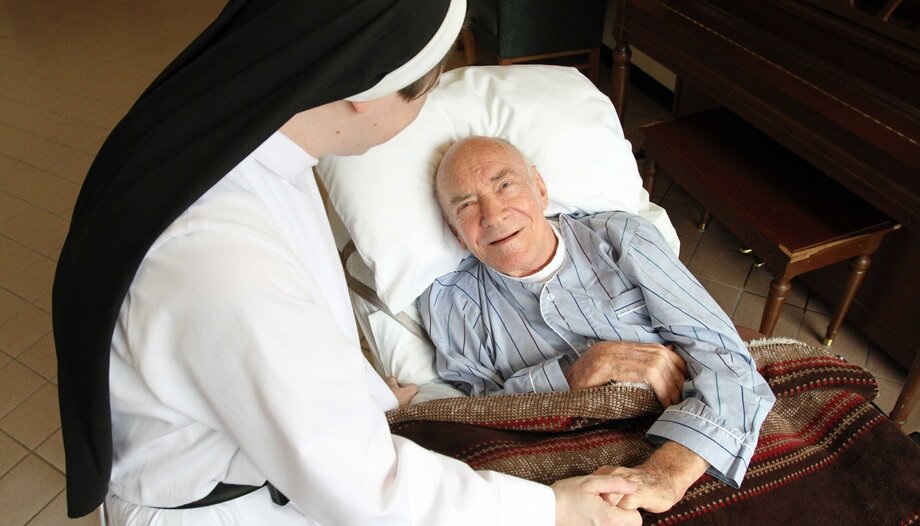"This interreligious symposium is an occasion to identify the importance of the care palliative care, especially in promoting the dignity of the human person in times of illness and at the end of life," said Bishop William McGrattan, president of the Canadian Conference of Catholic Bishops, in the video presentation of the symposium.
The event, which takes place in the city of Toronto (Canada), is organized in two days, the first on May 21 and the second on May 23.
Hope in difficult situations
The Holy Father sent a message to the participants and speakers at the symposium in which he pointed out that the theme "is timely and necessary" because "today, as we witness the tragic effects of war, violence and injustices of various kinds, it is all too easy to give in to pain and even despair."
In the face of this reality, the Pope stressed the importance of hope, since "as members of the human family and especially as believers, we are called to accompany, with love and compassion, those who struggle and have difficulty in finding reasons for hope (cf. 1 Pet 3:15). Indeed, hope is what gives us strength in the face of the questions posed by the challenges, difficulties and anxieties of life."
This suffering, Francis acknowledges, can be especially acute "when we are faced with a serious illness or at the end of life. All those who experience the uncertainties so often brought about by illness and death need the witness of hope provided by those who care for them and remain at their side." The Pope then pointed out the importance of palliative care in these circumstances, since "while seeking to alleviate as much as possible the burden of pain, it is above all a concrete sign of closeness and solidarity with our suffering brothers and sisters. At the same time, this type of care can help patients and their loved ones to accept the vulnerability, fragility and finitude that mark human life in this world."
Condemnation of euthanasia
The Pope then condemned euthanasia, "which is never a source of hope or genuine concern for the sick and dying. On the contrary, it is a failure of love, a reflection of a 'throwaway culture' in which 'people are no longer considered a supreme value to be cared for and respected' ('Fratelli Tutti,' 18)."
Francis warned of the danger of presenting euthanasia "falsely as a form of compassion. Yet 'compassion,' a word that means 'to suffer with,' does not imply intentionally ending a life, but rather a willingness to share the burdens of those who face the final stages of our pilgrimage on earth."
True compassion: palliative care
In the face of this reality, the Pope contrasts palliative care, which "is a genuine form of compassion, because it responds to suffering, whether physical, emotional, psychological or spiritual, by affirming the fundamental and inviolable dignity of every person, especially the dying, and helping them to accept the inevitable moment of passage from this life to eternal life."
Furthermore, the Holy Father stressed that "our religious convictions offer a deeper understanding of illness, suffering and death, considering them part of the mystery of divine providence and, for the Christian tradition, a means towards sanctification. At the same time, the compassionate actions and respect shown by medical personnel and caregivers have often created the possibility for those at the end of their lives to find spiritual consolation, hope and reconciliation with God, family and friends."
Along these lines, Francis stressed the relevance of the role of caregivers and physicians at the end of a person's life: "Your service is important - I would even say essential - in helping the sick and dying to realize that they are not isolated or alone, that their lives are not a burden, but always remain intrinsically valuable in the eyes of God (cf. Ps 116:15) and being united to us by the bonds of communion."
In concluding his message, the Pope encouraged the participants in the symposium to "advance palliative care for the most vulnerable of our brothers and sisters. May your discussions and deliberations during these days help you to persevere in love, to give hope to those at the end of life and to advance in building a more just and fraternal society."








